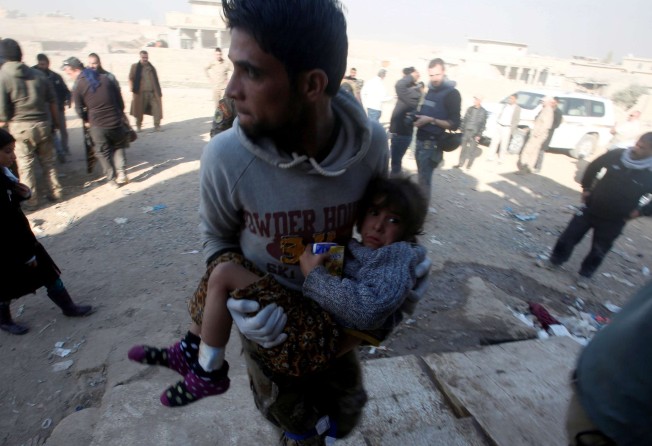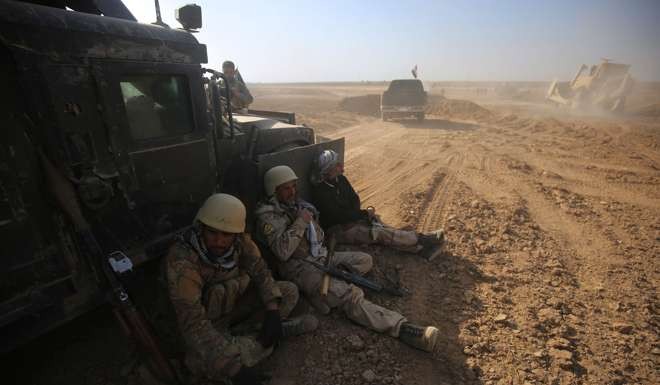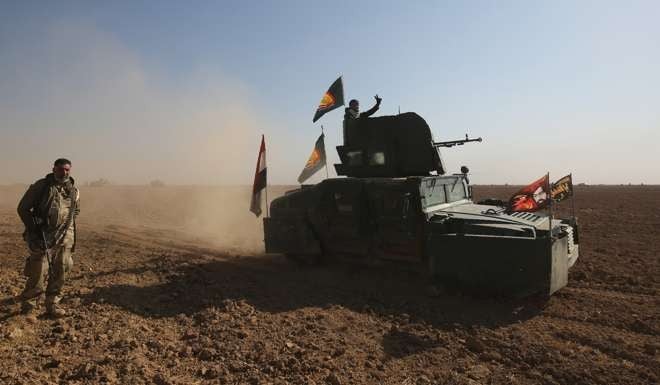Crisis looms in Mosul, where half of residents have no access water
Islamic State fighters battling Iraqi forces may have intentionally stopped the flow

Hundreds of thousands of people were without water in eastern Mosul on Tuesday, residents and officials said, raising fears of a major health crisis in the war-torn Iraqi city.
It was not immediately clear what caused the disruption, but residents on the eastern side of Mosul said they had not had any water supplies for days and were pumping water from wells.
“There is a major shortage of water in many districts on the eastern side,” said Basma Basseem, from Mosul municipality.
She said up to 600,000 people living on that side of the Tigris river, which splits the city in two, could be affected.
Some residents said the sudden water shortage was caused by air strikes from the US-led coalition that damaged the main carrier bringing water from the western side of the city.
Basseem suggested that Islamic State (IS) fighters that Iraqi forces are battling in eastern Mosul may have intentionally stopped the flow.
“There are efforts to bring water tankers to neighbourhoods that have been retaken,” Basseem said.
Iraqi commanders said around 40 per cent of the eastern half of Mosul has been retaken from the jihadists since a huge offensive began on October 17.
The forces have told civilians to stay at home in order to avoid massive displacement from the city, which was believed to have a population of a million-plus before the operation started.

Barely more than a third of the 200,000 displaced that the UN had expected in the first few weeks of the offensive have fled their homes so far.
The lack of clean drinking water could now make it difficult for residents to remain, however.
“There is no water – we drink water from the well. It’s very salty and we have to boil it before we drink it,” said Umm Ahraf, a 45-year-old woman from the Khadraa neighbourhood.
“We don’t have water at all, we need it, it’s the most important thing, how can we live without it?” asked an old man living in the same neighbourhood.
Another resident of eastern Mosul said people in retaken areas of eastern Mosul were asking Iraqi forces for their supplies of bottled water.

Abdelkarim al-Obeidi, the secretary general of the local civil society organisation Mosul People Gathering, warned of a “humanitarian disaster” in the making.
“The government as well as aid organisations must step up and offer assistance to the people, especially those families forced to drink water from the wells that is not fit for drinking,” he said.
The local Nineveh provincial council on Tuesday delivered basic goods to several neighbourhoods of eastern Mosul.
The progress of Iraqi forces that vastly outnumber the estimated 5,000 jihadists defending their last major bastion in Iraq has been slowed by the presence of a large civilian population often used by IS as human shields.